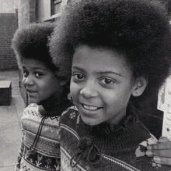






Technology
Empathy
Synergy
Science Education
Best viewed with Firefox (free download)
If using M$ Internet Explorer, resize the browser window slightly to fix page.
Technology and the Information Society of today is the Internet; previously it was the television and telephone; in previous centuries it was the book. This is what is thought of as information technology. Technology is usually thought of in cold terms. Slowly, socialization is becoming a goal for the Internet as more of the world gets connected. The Care2 activist community has been my work place for more than two years now, where I have experienced significant political successes.
Linux is a very significant contribution to the Information Society; it is the operating system behind the majority of web pages served, possibly 70%, and also now operates most tiny devices that make machines such as appliances and kiosks smart. It is not a leader on the Desktop, however, but it should be. It is much safer and more reliable than the dominating Microsoft Windows operating system.
Linux is also a significant example of synergy on the Internet, of people working together on a project with success, working purely in the mutualist model.
Discussion Group
Technology Writing:
Information Society Explosion, 1990 - 2000
Looking forward
Blog
Empathy, as a concept often means different things, but biologists have recently discovered cells that define it scientifically for us: mirror and spindle cells. These cells help us communicate inter-personally through emotions, and also help us communicate the sophisticated ideas necessary for innovation.
An energy wave is being developed as the importance of empathy in our lives and society is formally recognized. Empathy, as compassion, is very important to our health, and is important to our outlook on the world, making us important as people.
This growing phenomena is reminiscent of the early days of the Internet. It is only beginning to develop force. ,
Empathic communication may become the real information revolution.
Empathy Writing
Discussion Group
Synergy is thought of as people working well together, but it is far more. It was defined by Ruth Benedict when she was studying Native American tribes that were successfully recovering from the genocide of colonialist immigration. The successful tribes culturally defined success not in terms of wealth, but in terms of generosity. They especially gave high social status to those who gave strength to others: successful tribal members who gave strength to the less confident members. In a synergistic environment no one is left out or left behind; everyone willing to help is encouraged.
Synergy is the perfect model for communities, society, education, and Internet work projects.










Science education is rapidly changing. Today science is for the children; it is the responsibility of communities to help students organize into learning groups and develop their scientific skills.
Younger students tend to have their own relationship with the world; this is sometimes called "kid science." and it is very often the version of science accepted until recent centuries. There is nothing wrong with it as it reflects the child's relationship with the world, and most often that is the version of science understood by local communities.
The challenge of teaching science is to help the students guide themselves to a more scientific view of the world. Project-based science helps them join the scientific community by helping them organize their learning so that they themselves can make the discoveries that define our natural world. As many as one or two in ten scientists will offer their time to help younger students genuinely experience scientific discovery.
Empathy and Synergy offer pathways for students to become ideal learners growing into the ideal people for our age. The abilities to understand the surrounding environment, to adapt to changes, and most important to be able share information as well as success with the community define today's most successful person; within the school curriculum is called "learning to learn."
Group learning offers a way for the more successful students to help the less confident ones; it benefits the schools as well as the students by bringing up student test scores. In terms of the modern Information Society, today's ideal learner resembles successful members of native tribes.
I have two writings; one is on the topic of "Learning to Learn," and the other, "Teaching about Hurricanes" discusses a community project approach to learning about hurricanes, and how to ease the trauma that they may bring:
Learning to learn
Teaching about hurricanes
